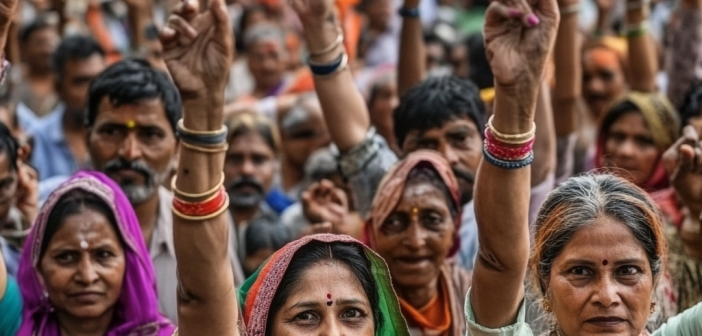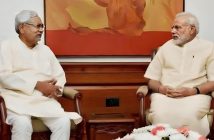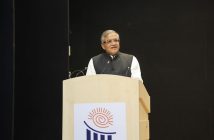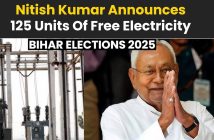In a groundbreaking move, the Election Commission of India is transforming the voting experience with a new mobile phone deposit facility. Starting with the upcoming bypolls and set for the Bihar assembly elections, this initiative ensures voters can securely store their devices before casting ballots. Aimed at enhancing convenience and safeguarding the secrecy of the vote, the reform is a bold step toward modernising India’s electoral process. Dive into how this change is reshaping polling day dynamics!
New Delhi, May 24, 2025 – Imagine arriving at a polling station, ready to cast your vote, only to realise you can’t bring your mobile phone inside. For millions of Indian voters, this scenario just got easier. The Election Commission of India (ECI) has rolled out a pioneering mobile phone deposit facility at polling stations, a move set to debut in upcoming bypolls and take centre stage during the Bihar assembly elections later this year. This initiative, paired with revised canvassing rules, aims to streamline the voting process, boost security, and ensure the sanctity of India’s democratic exercise.
The What and Why of the Mobile Phone Deposit Facility
The ECI’s new rule prohibits voters from carrying mobile phones inside polling stations, a measure rooted in Rule 49M of the Conduct of Elections Rules, 1961, prioritising the voting process’s secrecy. To address the practical challenges voters face—especially senior citizens, women, and persons with disabilities (PwD)—the ECI has introduced a system where voters can deposit their phones in simple pigeonhole boxes or jute bags at polling station entrances. Phones are permitted within a 100-meter radius of the station but must be switched off.
The rationale is straightforward: mobile phones, now ubiquitous across India’s diverse electorate, pose potential risks. From unauthorised recordings that could compromise vote secrecy to distractions in crowded polling areas, phones have been a growing concern. “This facility is a game-changer,” says Dr. Anjali Sharma, a political analyst based in Delhi. “It addresses voter convenience while reinforcing the integrity of the electoral process.”
Background: A Response to Evolving Needs
India’s electorate is vast, with over 900 million registered voters as of 2024, according to ECI data. Mobile phone penetration has soared, with a 2023 TRAI report estimating 1.2 billion mobile connections nationwide. This ubiquity has brought challenges to polling stations, particularly in urban and semi-urban areas. In past elections, voters often resorted to hiding phones or leaving them in unsecured locations, risking theft or misuse.
The ECI’s initiative builds on lessons from previous polls. For instance, during the 2019 Lok Sabha elections, reports surfaced of voters in Uttar Pradesh concealing phones to bypass restrictions, leading to delays and disputes. The new deposit facility aims to eliminate such issues, offering a secure, organised solution. Returning Officers can also exempt certain polling stations based on local conditions, ensuring the rule adapts to diverse contexts.
Key Events: Rolling Out the Reform
The mobile phone deposit facility is being implemented immediately for bypolls across several states, with full enforcement planned for the Bihar assembly elections later this year. Polling stations will be equipped with secure storage options, such as numbered pigeonhole boxes or labelled jute bags, managed by election officials. Voters will receive a token or receipt to retrieve their devices after voting.
Alongside this, the ECI has revised canvassing norms to complement the initiative. In some cases, canvassing, previously restricted within 200 meters of polling stations, is now prohibited within a 100-meter radius. Political parties can set up booths to distribute unofficial voter identity slips just beyond this boundary, balancing voter convenience with maintaining a neutral polling environment.
Chief Election Commissioner Gyanesh Kumar emphasised the ECI’s commitment to modernisation. “Our goal is to make voting accessible, secure, and seamless,” Kumar said at a recent press conference. “These reforms reflect our dedication to adapting to the needs of a modern electorate while upholding democratic principles.”
Stakeholder Perspectives: A Unified Welcome
The initiative has garnered widespread political leaders, election officials, and civil society support. Congress leader Priya Ranjan, a vocal advocate for electoral reforms, praised the move: “This facility ensures that voters, especially the elderly and disabled, aren’t burdened by logistical challenges. It’s a win for inclusivity.”
Election officials also see practical benefits. In sensitive polling areas, where security is a concern, the deposit system reduces the risk of phones being used to intimidate voters or capture ballots. “We’ve seen instances where phones disrupted the process,” notes Rakesh Verma, a Returning Officer in Patna. “This system brings order and trust.”
Voters, too, are optimistic. Sunita Devi, a schoolteacher in Bihar, shared her relief: “I always worried about leaving my phone outside. Now, I can vote without stress.” For PwD voters, the facility is particularly significant, as many rely on caregivers who may need to manage their devices during the process.
Broader Implications: Modernising India’s Electoral Landscape
The mobile phone deposit facility is a broader push to modernise India’s electoral framework. The ECI has been experimenting with technology-driven solutions, such as voter-verifiable paper audit trails (VVPATs) and online voter registration, to enhance transparency and accessibility. By addressing the mobile phone challenge, the ECI is tackling a uniquely 21st-century issue, aligning India’s election management with global best practices.
The reform also has implications for voter turnout. A 2022 study by the Centre for Policy Research found that logistical barriers, such as long queues and security concerns, deterred 8-10% of eligible voters in urban areas. The ECI hopes to boost participation by streamlining the polling process, particularly among young and first-time voters.
Globally, India’s approach could set a precedent. Countries like Brazil and South Africa, which also manage large-scale elections, face similar challenges with mobile devices at polling stations. The ECI’s simple, cost-effective, and adaptable model could inspire others to adopt similar measures.
Challenges and Considerations
While the initiative is promising, challenges remain. Implementing secure storage could strain local infrastructure in rural areas, where polling stations may lack resources. The ECI has pledged to provide funding and training to address this, but execution will be key. Additionally, voter awareness campaigns will be critical to ensure people understand the new rules and trust the deposit system.
Privacy concerns also linger. Some voters may worry about data security when handing over their phones, even temporarily. The ECI has assured that devices will remain switched off under strict supervision, but building public confidence requires transparent communication.
Looking Ahead: A Step Toward a Smarter Democracy
The Election Commission’s mobile phone deposit facility marks a significant milestone in India’s electoral evolution. By addressing a practical challenge with a simple yet effective solution, the ECI is demonstrating its commitment to voter-centric reforms. As the initiative rolls out, its success will depend on robust implementation, public trust, and adaptability to local needs.
For India’s 900 million voters, this reform is more than a logistical fix—it’s a testament to the resilience of the world’s largest democracy. As Chief Election Commissioner Kumar aptly said, “Every vote counts, and every voter deserves a seamless experience.” With the Bihar elections on the horizon, all eyes will be on how this bold step shapes the future of voting in India.
SEO Keywords: Election Commission of India, mobile phone deposit facility, voter convenience, polling station rules, Bihar elections, electoral reforms, vote secrecy, canvassing norms, Indian democracy, voter turnout.
LSI/NLP Keywords: voting process, election security, mobile phone restrictions, polling station management, electoral integrity, voter experience, modernising elections, ECI initiatives, democratic participation, electioneering rules.




